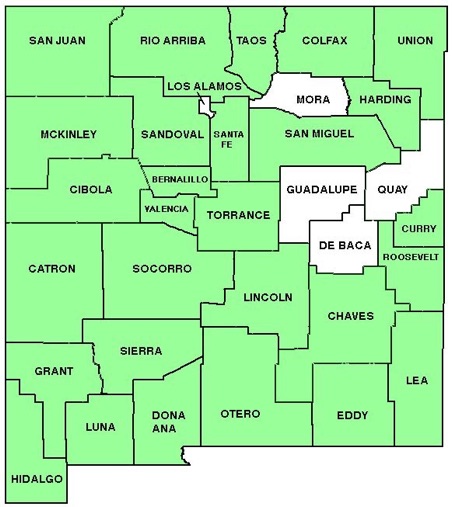WILDFLOWERS OF NEW MEXICO

The round to cylindrical stems, single or clumping, of this showy cactus reach 8-inches tall and 4-inches in diameter and are covered with 3/8–1-inch long tubercles or nipples (not ribs). Magenta flowers grow from the stem apex, and the fruit is greenish.
FLOWER: May–June. From 1–5 or more flowers, 1 1/8–2 1/2-inches wide (27–55 mm), crowd the apex of the stem. The numerous petal-like tepals have pointed tips with the outer ones lined with hair-like fringe; stigma color varies from pink to white depending on variety. Fruits are green to dull red or brownish, oval, 5/8–1 5/8-inches long (15–41 mm).
SPINES: About 5 varieties in NM that vary from 10–40 white radial spins that can spread to obscure the stem; var. neomexicana has 5–11 white to straw-colored centrals with dark tips, and 25–35 radials that obscure the stem; var. vivipara has 4 central spines, bright-reddish on the upper stem half, and 10–26 bright-white radials that do not obscure the stem; var. radiosa has 4–7 straw-colored to white central spines, and 17–30 radials that do not obscure the stem.
HABITAT: Sandy, gravelly soils of desert scrub, pinyon-juniper hills.
ELEVATION: 3,700–8,000 feet.
RANGE: Widespread throughout western U. S. from TX to Canada.
SIMILAR SPECIES: The varieties in NM with slight differences noted above. The flower of var. vivipara has magenta to pink stigma lobes; var. neomexicana widespread in NM, and var. arizonica in the Four Corners have white sigma lobes; var. radiosa has a rose-colored stigma lobes. Two fishhook cacti, Mammillaria grahamii and M. wrightii, both widespread, have look-alike flowers but long, hook-tipped central spines.
NM COUNTIES: Nearly statewide (not reported in De Baca, Guadalupe, Mora, Quay cos.) in low- to mid-elevation, arid habitats.

BEEHIVE CACTUS, SPINYSTAR
CORYPHANTHA VIVIPARA (ESCOBARIA VIVIPARA)
Cactus Family, Cactaceae
Perennial cactus



THE CONTENTS OF THIS WEBSITE ARE COPYRIGHTED AND CANNOT BE USED
WITHOUT PERMISSION OF GEORGE OXFORD MILLER



Range Map for
Coryphantha vivipara
EMAIL ME